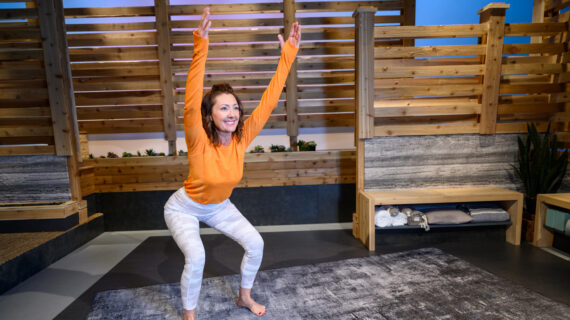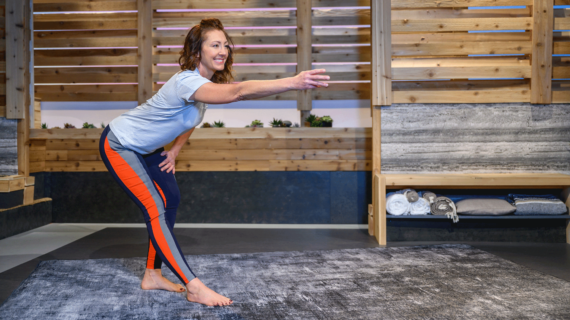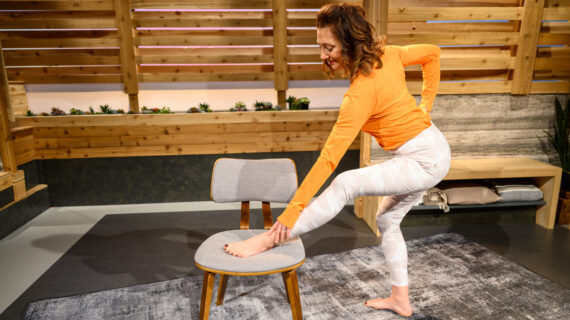Frederica Freyberg:
In Madison, harsh demands, harsh realities. A group called the Young, Gifted and Black Coalition wants the Madison police department to have no interaction with black people in the city. The group says it wants to practice self-determination, not policing. It cites disparities between numbers of black people arrested and non-blacks in Madison as among the highest in the nation. The coalition detailed changes they seek in Madison law enforcement in an open letter to Madison police chief, Michael Koval. Brandi Grayson is a spokesperson for the Young, Gifted and Black Coalition. She joins us now. Thanks for being here.
Brandi Grayson:
You’re so welcome.
Frederica Freyberg:
So again, one of those changes that you seek is no interaction between black people and Madison police. Is this rhetorical, to start the conversation about disparity, or are you being literal?
Brandi Grayson:
Well, I think– Excuse me. I think there’s been some misunderstanding about that one line in our entire statement, because we said a lot in that statement. But what we are getting at is that our ultimate goal, our ultimate goal is not to have any police interaction. When we say no police interaction, we’re referring to the same policing model or police model that’s used and seen in most white neighborhoods. We’re not asking for anything differently or something unheard of. I think the issue here is that in black neighborhoods or people of color neighborhoods, it’s become normalized to have an overflow of police, as if those neighborhoods have the highest crime rates. In reality, those neighborhoods do not have the highest crime rates. We know for certain that the area in Madison with the highest crime rates is downtown Madison. So when we look at where police are placed and where arrests happen and citations happen and why they happen, it’s not because people are necessarily criminals. I mean, I’ve gotten tickets that I’ve been in positions where I’ve gotten tickets and didn’t have the money to pay it. So then I get a warrant. I’ve had a warrant for a ticket, you know. But I didn’t have the money, you know. So if you’re in a situation and you have over-presence of police, then we know just by records and data alone that that increases the likelihood of arrest.
Frederica Freyberg:
So you’re not suggesting that you don’t want a police officer’s help if in fact you are or others are being victimized.
Brandi Grayson:
No, absolutely not. That is far from what we’re saying. We want the same policing that you experience in your neighborhood. You know, we want policing that is reactive. We want to be able to have opportunity to call you if we need your assistance, versus police being in the neighborhoods patrolling, quote unquote. And what ends up happening is you have people harassed, you have people profiled, and that increases the likelihood of arrest.
Frederica Freyberg:
What about the idea that the Madison Police Department seems to pride itself on, and that is community policing? I mean, they want to have more of these, I think they call them resource officers, in neighborhoods across the city. Is that an over-abundance of police in your mind?
Brandi Grayson:
Well, I just want to first say I appreciate Madison Police Department. There's– This isn’t a personal issue, this isn’t a personal attack. This is really about the system of injustice and the system of policing. And we don’t disagree with community police. We disagree with community policing. We disagree with having five cops in the neighborhood. We have a history, meaning we– When I say “we,” I mean black people. We have a history with police, and 95% of black people in these neighborhoods do not trust police. We do not trust them. We do not wish to engage in friendly conversation with them. We don’t wish to have them come to our birthday parties. We don’t wish those things. They’re not our friends. They're not– The system of policing has a years, generations, of history with us that’s passed on and passed on, of trauma.
Frederica Freyberg:
But do you think that it might be valuable if you could be friends, if you could– if people could view police not as enemies, but as friends?
Brandi Grayson:
Well, I would just like to throw the question out there, is that the same thing that white people desire? Is that the same policing that white people desire in their neighborhoods? If this model is to be effective, then it has to have equity. It has to be the same across boards. Why do we think and why do we find it natural for police to want to engage with us or to have those relationships just with black and brown people? We don’t see police officers or the chief saying how important it is to engage white citizens and white residents. And we know by the numbers that white– crimes by black and white people are equal across boards, and some studies show that white people use more drugs than we do. But there’s still the disparity in arrests when it comes to drug usage. So what is that about? Where is that coming from? We would say that is coming from the over-presence of police in our neighborhoods.
Frederica Freyberg:
You touched on it earlier in our conversation about other factors that come into play here, including low incomes or poverty, whereby you kind of get stuck in this system because you can’t pay the fine or the bail.
Brandi Grayson:
That’s right, that’s right.
Frederica Freyberg:
And so that’s something that you see all the time?
Brandi Grayson:
Yes. We know that most– we have– Most of the people in jail we know statistically are in jail due to poverty, crimes of poverty. People who get arrested for loitering, trespassing, you know, sleeping on benches, people who get cited. When you cite a homeless person, do you really think they can pay the ticket? You know? When we look at the number of people in jail, we know that 45% of people currently in Dane County are in jail with the bail of $1,000 or less. That’s a lot of people. And Chief Koval did make the statement that most of the people in jail are in jail because of Department of Corrections’ holds. Well, we looked at the numbers. It's actually 19.6 people out of people currently in Dane County that’s in the jail on DOC holds. So that’s a discrepancy.
Frederica Freyberg:
We need to leave it there.
Brandi Grayson:
Okay.
Frederica Freyberg:
Brandi Grayson, thanks very much.
Brandi Grayson:
Thank you. I could have went on and on.
Search Episodes
Related Stories from PBS Wisconsin's Blog

Donate to sign up. Activate and sign in to Passport. It's that easy to help PBS Wisconsin serve your community through media that educates, inspires, and entertains.
Make your membership gift today
Only for new users: Activate Passport using your code or email address
Already a member?
Look up my account
Need some help? Go to FAQ or visit PBS Passport Help
Need help accessing PBS Wisconsin anywhere?

Online Access | Platform & Device Access | Cable or Satellite Access | Over-The-Air Access
Visit Access Guide
Need help accessing PBS Wisconsin anywhere?

Visit Our
Live TV Access Guide
Online AccessPlatform & Device Access
Cable or Satellite Access
Over-The-Air Access
Visit Access Guide
 Passport
Passport


















Follow Us